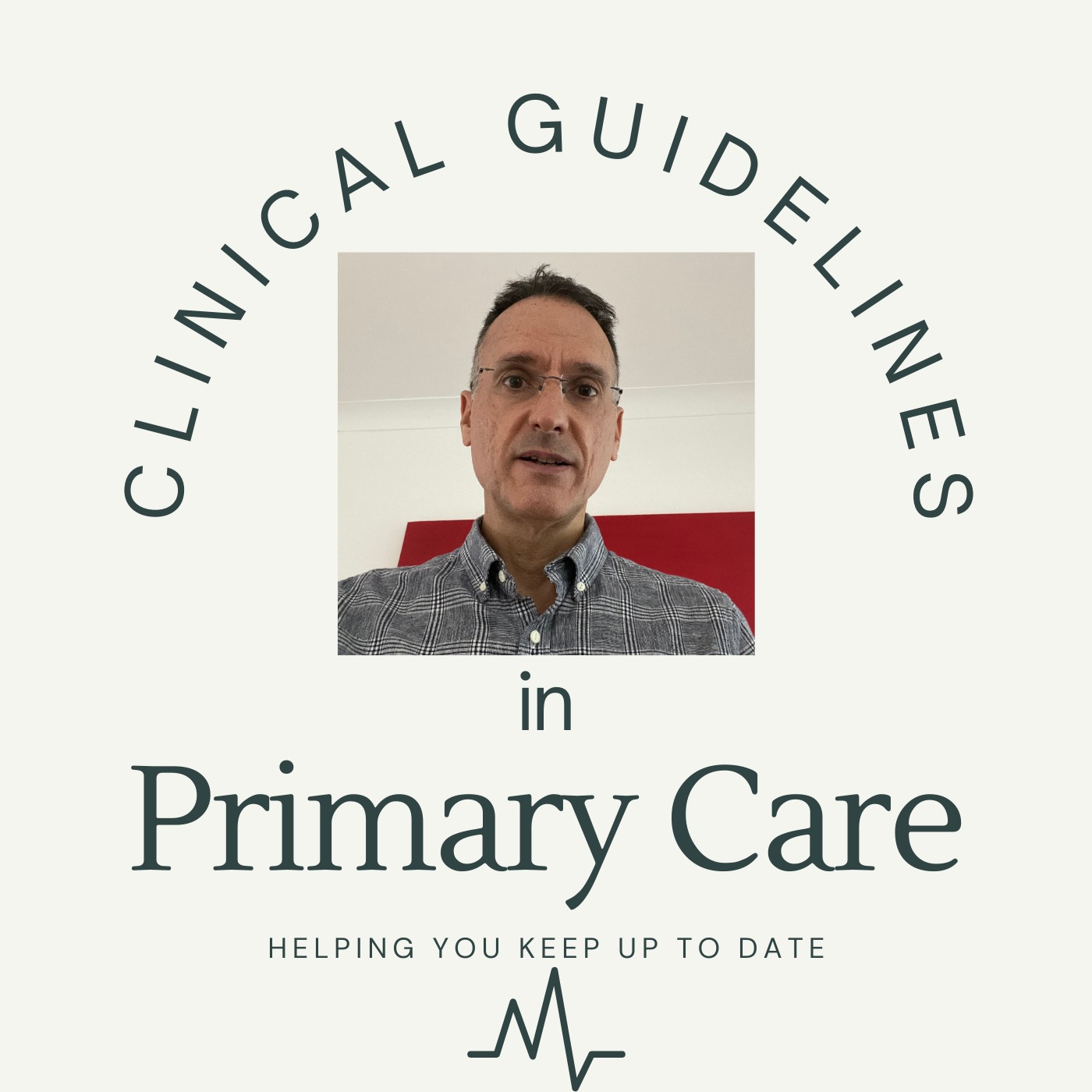Podcast - Insomnia Management According to NICE: Sleep Like a Pro
Description
This episode makes reference to guidelines produced by the "National Institute for Health and Care Excellence" in the UK, also referred to as "NICE". Please note that the content on this channel reflects my professional interpretation/summary of the guidance and that I am in no way affiliated with, employed by or funded/sponsored by NICE.
My name is Fernando Florido and I am a General Practitioner in the United Kingdom. In this episode I will go through a number of NICE products on insomnia, including guidance on the medical technology sleepio, and the prescribing of z-drugs, daridodexant and melatonin.
I will summarise the guidance from a Primary Care perspective only.
I am not giving medical advice; this video is intended for health care professionals; it is only my interpretation of the guidelines and you must use your clinical judgement.
There is a podcast version of this and other videos that you can access here:
Primary Care guidelines podcast:
· Redcircle: https://redcircle.com/shows/primary-care-guidelines
· Spotify: https://open.spotify.com/show/5BmqS0Ol16oQ7Kr1WYzupK
· Apple podcasts: https://podcasts.apple.com/gb/podcast/primary-care-guidelines/id1608821148
There is a YouTube version of this and other videos that you can access here:
The Practical GP YouTube Channel:
https://youtube.com/@practicalgp?si=ecJGF5QCuMLQ6hrk
The Medical technologies guidance [MTG70] on “Sleepio to treat insomnia and insomnia symptoms” can be found here:
· https://www.nice.org.uk/guidance/mtg70
The Technology appraisal guidance [TA77] “Guidance on the use of zaleplon, zolpidem and zopiclone for the short-term management of insomnia” can be found here:
· https://www.nice.org.uk/guidance/ta77
The Technology appraisal guidance [TA922] “Daridorexant for treating long-term insomnia” can be found here:
· https://www.nice.org.uk/guidance/ta922
The Evidence summary [ES38] “Melatonin for treating sleep disorders in adults who are blind” can be found here:
· https://www.nice.org.uk/advice/es38/chapter/Product-overview
Thumbnail photo: from Freepik: https://www.freepik.com/
· Image by Freepik
· Image by a href="https://www.freepik.com/free-photo/flat-lay-woman-laying-bed_28694061.htm#query=insomnia&position=21&from_view=search&track=sph&uuid=65539da6-4c29-453b-9d22-c39df5176601"Freepik/a
Intro / outro music: Track: Halfway Through — Broke In Summer [Audio Library Release]
Music provided by Audio Library Plus
Watch: https://youtu.be/aBGk6aJM3IU
Free Download / Stream: https://alplus.io/halfway-through
Transcript
Hello and welcome, I am Fernando, a GP in the UK. Today, we will go through a number of NICE publications on insomnia, including guidance on digital cognitive behavioural therapy for insomnia (CBT-I), and the prescribing of hypnotics, daridodexant and melatonin, all of them from a Primary Care perspective.
By the way, make sure that you stay for the entire episode because, at the end, I will go through some audit ideas backed by NICE which you could use as a Quality Improvement Project in your practice.
So, let’s jump into it.
Let’s talk a little about the condition first.
Insomnia is a disturbance of sleep characterised by difficulty in initiating and/or maintaining sleep. However, insomnia is highly subjective and although most healthy adults typically sleep between 7 and 9 hours per night, patterns vary between people, and in any given person there are also variations from night to night.
Estimates of the prevalence of insomnia vary and while up to 48% of people have reported sleeping issues, only 6% met the criteria for a diagnosis of insomnia. So, in general practice, differentiating between simple sleeping problems and significant insomnia is important before considering treatment.
The prevalence of insomnia is higher in women and increases with age and, althoug
More Episodes
The video version of this podcast can be found here:
https://youtu.be/0yQ_Be-xU6o
This video makes reference to guidelines produced by the "National Institute for Health and Care Excellence" in the UK, also referred to as "NICE". Please note that the content on this channel reflects my...
Published 05/20/24
Published 05/20/24
The video version of this podcast can be found here:
https://youtu.be/Pi7cBcov2fI
This video makes reference to guidelines produced by the "National Institute for Health and Care Excellence" in the UK, also referred to as "NICE". Please note that the content on this channel reflects my...
Published 05/14/24


